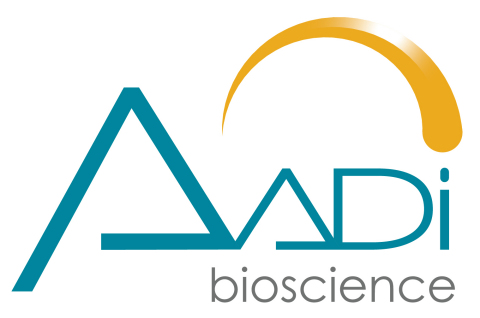Aadi Bioscience Initiates Rolling Submission of NDA to FDA for nab-sirolimus (ABI-009, FYARRO™) for the Treatment of Advanced Malignant PEComa
Aadi Bioscience Initiates Rolling Submission of NDA to FDA for nab-sirolimus (ABI-009, FYARRO™) for the Treatment of Advanced Malignant PEComa
- Rolling submission of U.S. FDA New Drug Application initiated
- Long-term follow-up data released at ASCO 2020 for AMPECT study
- Independent reviewed ORR of 39%
- Long-term, durable ongoing responses with half the responders having ongoing response duration of 25.8 months or longer
- Exploratory analysis in patients with TSC2 mutated tumors show response rate of 89%
PACIFIC PALISADES, Calif.--(BUSINESS WIRE)--Aadi Bioscience, Inc. (Aadi), a privately held biopharmaceutical company focused on development and commercialization of nab-sirolimus (sirolimus albumin-bound nanoparticles for injectable suspension) in mTOR driven diseases, today announced that the company has initiated submission of a rolling New Drug Application (NDA) to the U.S. Food and Drug Administration (FDA) for the treatment of advanced (metastatic or locally advanced) malignant PEComa (perivascular epithelioid-cell tumor) – a rare form of sarcoma driven by mTOR activation for which there is currently no approved therapy. The company expects to complete the NDA submission in the 4th quarter of 2020.
“Following receipt of Breakthrough Therapy, Fast Track, and Orphan Designations, the initiation of the NDA submission for nab-sirolimus is an important milestone for Aadi and a step towards the goal of treating high unmet need diseases with established mTOR pathway activation,” said Neil Desai, Ph.D., Chief Executive Officer of Aadi. “We are proud to have completed the AMPECT Study, the first prospective clinical trial for advanced PEComa, and will continue to work expeditiously to complete the submission and bring this potential new therapy to patients.”
About nab-sirolimus
nab-sirolimus is an mTOR inhibitor complexed with human albumin that has demonstrated significantly higher tumor accumulation, mTOR target suppression and superior efficacy over other mTOR inhibitors in preclinical models (Hou 2019, AACR Abstract 348). In long-term follow-up data presented on the AMPECT study at the recent ASCO conference (Wagner 2020, Abstract 11516), an analysis of 31 RECIST-evaluable advanced PEComa patients treated with nab-sirolimus demonstrated a 39 percent (95% CI: 22%-58%) independently-reviewed confirmed overall response rate (ORR) including 1 CR and 11 PRs. The median duration of response has not yet been reached (range 5.6 to 42.4+ months, with 50% of the responders having a response duration that is 25.8 months or longer) and the majority of the responders are still on treatment. The response rate in the patients with metastatic disease was 46% (12/26, 95% CI: 27%-67%) and in the patients with locally advanced, inoperable disease, 2/5 (40%) were able to undergo surgery following tumor shrinkage and currently remain disease-free in excess of 3 years. The median progression-free survival was 8.9 months (95% CI : 5.5 – not reached) and the 1 year overall survival rate was 89%. In an exploratory analysis of the subset of patients with TSC2 mutations, the independently reviewed response rate was 89% (95% CI: 57%-99%). The safety of nab-sirolimus was considered acceptable in this population, with the safety profile being consistent with that for the class of mTOR inhibitors. nab-sirolimus has received Breakthrough Therapy, Fast Track and Orphan Designations from the FDA. For additional information about nab-sirolimus clinical trials, please refer to www.clinicaltrials.gov (NCT02494570).
About PEComa
Perivascular epithelioid-cell tumors, defined by the World Health Organization as “mesenchymal tumors composed of distinctive cells that show a focal association with blood-vessel walls and usually express both melanocytic and smooth muscle markers,” are a rare subset of soft-tissue sarcomas, with an undefined cell of origin. Malignant PEComas may arise in almost any body site (typically the uterus, retroperitoneum, lung, kidney, liver, genitourinary, and gastrointestinal tract) and can have an aggressive clinical course including distant metastases and ultimate death. Cytotoxic chemotherapies typically used for sarcoma show minimal benefit and there are currently no drugs approved for this disease. Malignant PEComas have been shown to frequently harbor mutations in the TSC1 and/or TSC2 genes that result in the activation of mTORC1 pathway. Therefore, mTORC1 signaling is a promising therapeutic target for malignant PEComa.
About Aadi Bioscience
Aadi is a clinical stage biopharmaceutical company founded by Dr. Neil Desai, an inventor of ABRAXANE® and the albumin-based technology platform. The development pipeline focuses on diseases with high unmet need that are driven by mTOR activation and where other mTOR inhibitors have not or cannot be effectively exploited due to problems of pharmacology, effective drug delivery, safety or effective targeting to the disease site. Aadi has ongoing or planned clinical studies in oncology (solid tumors with TSC2 mutations, advanced colorectal cancer with respect to PTEN status, pediatric tumors, advanced sarcoma, newly diagnosed and recurrent glioblastoma, advanced neuroendocrine tumors), cardiovascular (pulmonary arterial hypertension), CNS (surgically refractory epilepsy), and mitochondrial disease (Leigh Syndrome) indications. In addition, due to its broad-based immune-suppressive and cytokine suppression activity, Aadi is in discussion with the FDA for potential clinical studies of nab-sirolimus in the treatment of COVID-19 induced cytokine storm syndrome.
The AMPECT study was funded in part by a grant from the FDA Office of Orphan Products Development (OOPD).
ABRAXANE is a registered trademark of Celgene Corporation.
Contacts
Aadi Contact:
Nancy Jorgesen
Email: njorgesen@aadibio.com
Website: www.aadibio.com
